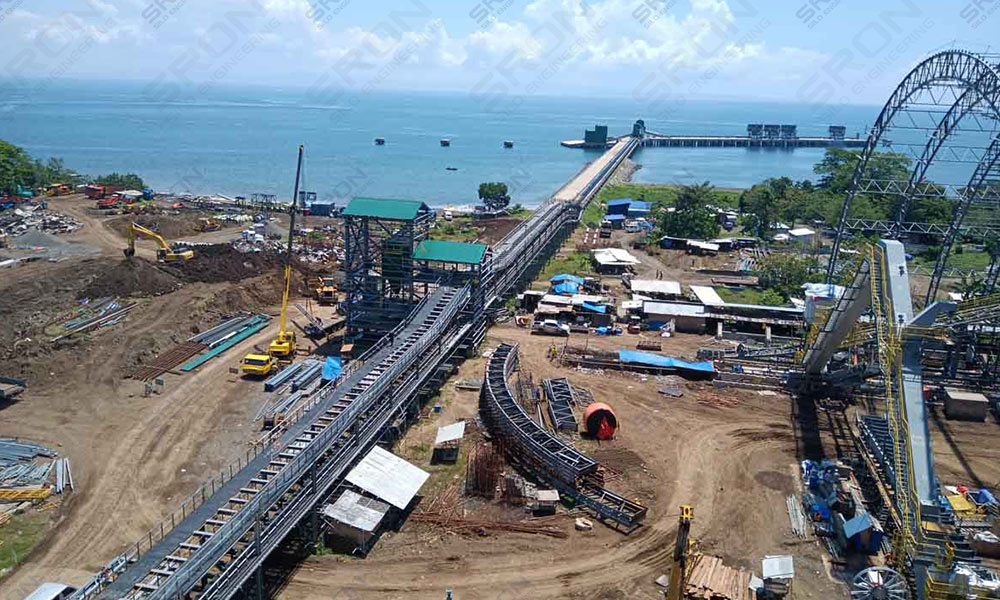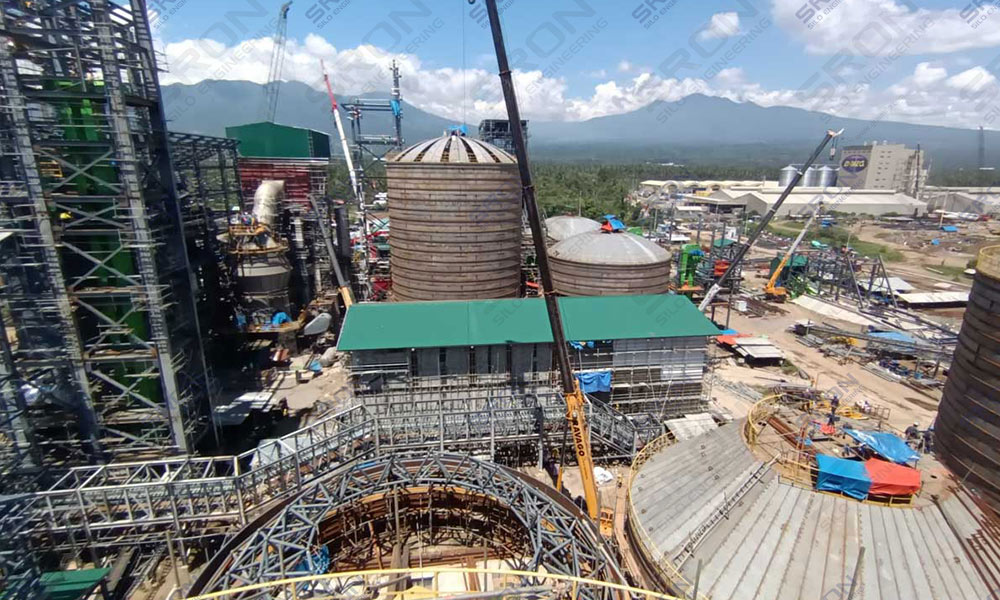Introduction to Large Welded Steel Silo
Large welded steel silo, the silo body is mainly welded by steel. It is a silo type developed and constructed independently in the continuous development of China's steel silo industry, also known as steel silo. The effective diameter of the welded steel silo can reach tens of meters. The silo body is cylindrical, the silo roof is spherical, and the silo wall adopts the form of a steel structure frame. Large steel silos have the characteristics of large storage capacity, short construction period, low investment per ton storage, small footprint, simple transportation method, few dust emission points and self-homogenization. In terms of powdery materials such as cement and fly ash, large steel silos not only solve the problem of safe storage of materials in off-season and short supply in peak seasons, but are also a storage silo for centralized bulk transfer of materials. In terms of the enterprise's "energy saving and reduction"and environmental protection, they have produced extremely outstanding results.
Characteristics of Large Welded Steel Silo
1.Structure Shape and Size
The effective diameter of a large steel silo can reach tens of meters, and the height-to-diameter ratio is generally around 1:1. The silo body is cylindrical and the top of the silo is a spherical circular silo. The walls of the silo are welded with steel plates; the spherical roof is formed by the structural design of shaped steel and the combination of multiple arched beams, forming a unique architectural structure, which gives the dome a reliable load-bearing capacity.
2.Fed into Silo of Materials
Materials can be put into the silo mechanically or pneumatically. According to the different conditions of each plant, the methods of elevator warehousing, chute warehousing or pneumatic conveying pipeline warehousing can be adopted. A bridge can be erected between the top of the silo and between the top of the silo and the elevator frame to facilitate the installation of incoming material conveying equipment.
3.Material Discharge Method and Flow Rate
When discharging, the cement is sent out of the silo through the conveying pipeline, and the cement is sent into the packaging silo or bulk cement tank through lifting equipment or pneumatic conveying equipment. Designed according to the client's requirements for silo discharge flow, the discharge capacity of a single pipeline can reach 500T/H, and double-pipe or multi-pipeline combinations can be used for larger flow rates to meet client requirements.
4.Small Gas Consumption
Since the silo adopts the design concept of integrating gas fluidization, gas homogenization, and gas delivery out of the silo, that is, the principle of one gas for multiple purposes, a large amount of gas sources can be saved. Considering that the storage period of cement is long and the bulk density is increased, high-pressure air is used as the gas source.
5.Quality Effect of Cement Preservation
Cement is basically vacuum sealed in the tight air isolation of the large steel silo walls. This sealing effect is much better than that of brick, stone, and concrete structural silo, and bagged cement is even more incomparable. Practice has proved that when cement is stored in a large steel silo for more than two years, in addition to a slight increase in setting time and a slight decrease in flexural strength, the compressive strength remains basically unchanged and there is no agglomeration.
The top of the silo is a load-bearing dome, and a pulse vibration dust collector is installed on the top of each silo to mainly collect dust generated when materials are put into the silo and reduce the dust concentration to less than 30 mg/m3.
7.Flexible and Free Process Layout
According to the site location, it can be arranged in a variety of layouts such as straight, triangular, double row or multiple rows. The direction of the discharging corridor can be flexibly determined according to the site conditions. Since pneumatic pipes are used to discharge materials, the position of the elevator can be freely selected.
8.Wide Range of Storage Uses
While promoting large-scale cement storage silos, SRON has also successively developed clinker and fly ash storage silos, which not only reduced investment, eliminated environmental pollution, but also saved a large amount of construction land. At the same time, special storage silos for grain and other materials were also developed.
9.Short Construction Period
Depending on the geological conditions, construction site and construction environment, the construction period is generally 2.5-4 months. If it is a silo group construction, cross construction or simultaneous construction can be carried out to shorten the construction period.
10.Long Service Life
Anti-corrosion maintenance is carried out according to specifications, and a reliable service life of 30 years can be guaranteed if there is no obvious corrosion on the surface.
11.Low Maintenance Costs
The discharging equipment in the silo has almost no maintenance costs. The gasification, unloading and conveying equipment in the silo have no rotating parts and are basically maintenance-free. Even if the 20,000-ton cement storage silo is maintained every three years and only the outer layer of anti-rust paint is painted, the annual maintenance cost is only about 3,000 yuan.
SRON large steel silo technology has matured and been put into construction and use. If you are interested in our large steel silo or want to know more details, please feel free to contact us.

.jpg)


.jpg)